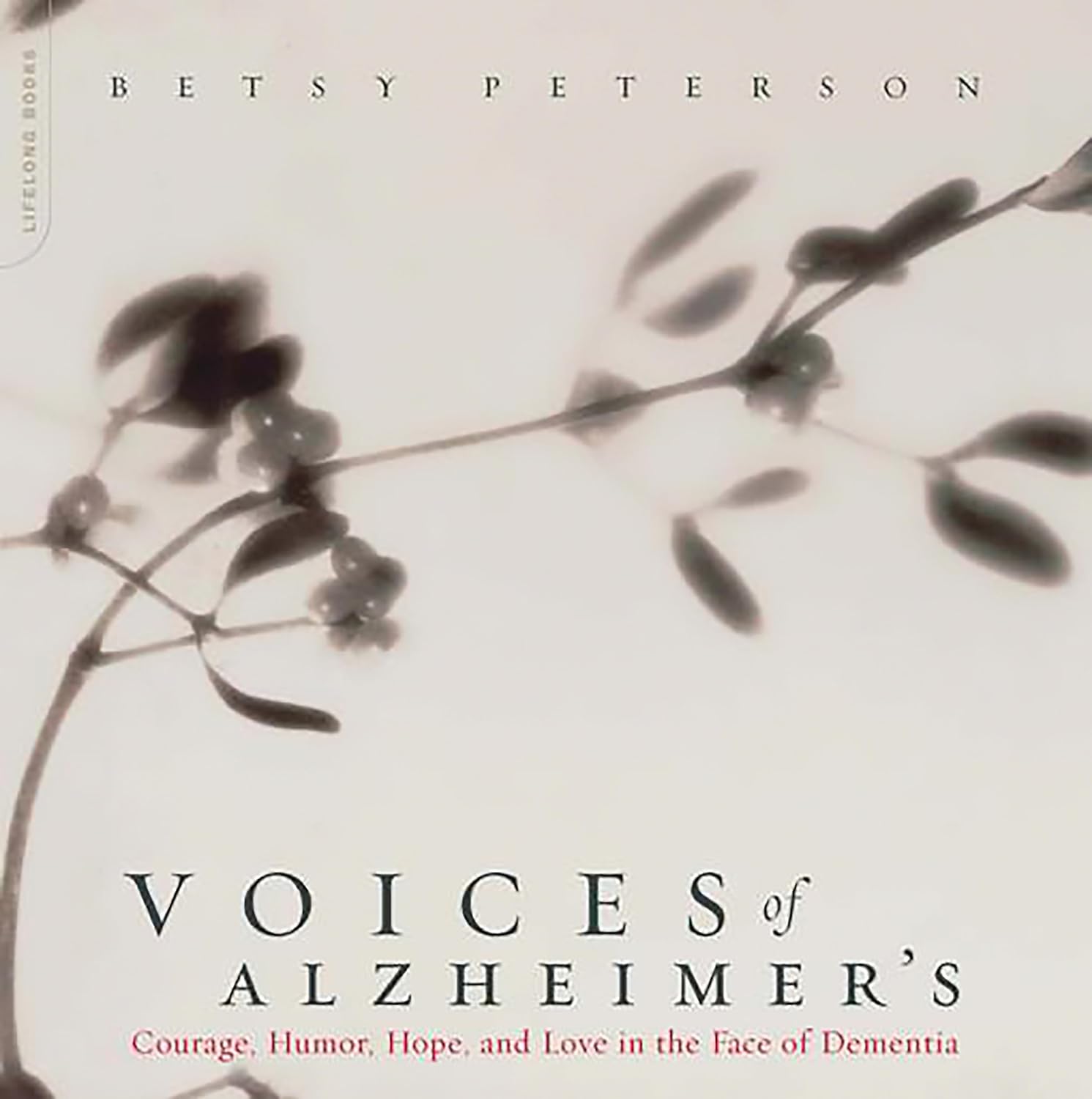We had the wonderful experience of having Beth Talbert as a guest on LilyList, where part of the conversation focused on her experience of supporting her husband who lived ten years with early-onset Alzheimer’s. She generously shared Voices of Alzheimer’s by Betty Peterson with us, and we wanted to share it with readers here.
In the growing body of literature surrounding Alzheimer’s disease, Betsy Peterson’s “Voices of Alzheimer’s” stands out as a beacon of hope and understanding. This compelling book captures the real-life experiences of those living with Alzheimer’s, their caregivers, family members, and medical professionals. Through its heartfelt narratives, the book not only educates but also deeply moves its readers. It has the potential to make a profound impact on anyone who picks it up, whether they are directly affected by the disease or simply seeking to understand it better.
One of the most significant impacts “Voices of Alzheimer’s” will have on readers is providing a source of comfort and validation. For those living with Alzheimer’s and their caregivers, the journey can often feel isolating and overwhelming. The book’s collection of stories offers a sense of community, showing that they are not alone in their struggles. By reading about others who share similar experiences, readers can find solace in knowing that their feelings and challenges are understood and shared by many.
Peterson’s book also plays a crucial role in fostering empathy and understanding among those who may not have direct experience with Alzheimer’s. The detailed personal accounts allow readers to see the world through the eyes of those affected by the disease. This heightened awareness can lead to greater compassion and support for individuals with Alzheimer’s and their families. As readers gain insight into the daily realities of the condition, they are more likely to advocate for better care and resources, contributing to a more informed and empathetic society.
“Voices of Alzheimer’s” is not just a collection of stories; it is also an educational tool. The narratives are interwoven with factual information about the disease, its progression, and the impact it has on individuals and their loved ones. Readers will gain a deeper understanding of the symptoms, challenges, and potential coping strategies associated with Alzheimer’s. This knowledge can be particularly beneficial for those who may be in the early stages of dealing with the disease or for caregivers seeking practical advice and insights.
Another powerful aspect of Peterson’s book is its capacity to inspire hope and resilience. Despite the difficulties faced by those living with Alzheimer’s, many of the stories highlight moments of joy, love, and perseverance. These uplifting accounts serve as a reminder that life does not end with an Alzheimer’s diagnosis; there are still opportunities for meaningful experiences and connections. Readers will be encouraged by the strength and resilience demonstrated by the individuals in the book, motivating them to approach their own challenges with renewed determination.
“Voices of Alzheimer’s” also plays a vital role in promoting conversations about Alzheimer’s disease. By sharing these personal stories, Peterson encourages readers to talk openly about their experiences and concerns related to the condition. This open dialogue is essential for reducing the stigma often associated with Alzheimer’s and for fostering a supportive environment where individuals feel comfortable seeking help and sharing their journeys.
Caregivers are often the unsung heroes in the battle against Alzheimer’s. Peterson’s book shines a light on their experiences, acknowledging the sacrifices they make and the emotional toll caregiving can take. By highlighting their stories, “Voices of Alzheimer’s” empowers caregivers by validating their efforts and providing them with insights from others who have walked a similar path. This sense of empowerment can lead to better self-care practices and a stronger support network, ultimately benefiting both caregivers and those they care for.
Finally, “Voices of Alzheimer’s” has the potential to encourage advocacy and support for further research into Alzheimer’s disease. As readers become more informed about the realities of living with Alzheimer’s, they may be inspired to take action. Whether through fundraising, volunteering, or advocating for policy changes, readers can contribute to the ongoing efforts to find better treatments and ultimately a cure for Alzheimer’s.
If interested, you can get a print or digital copy of the book from Amazon. We’d love to hear your thoughts if you read it.


